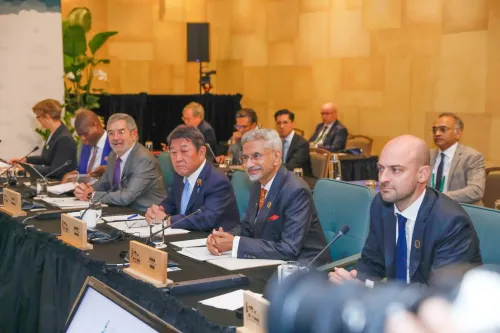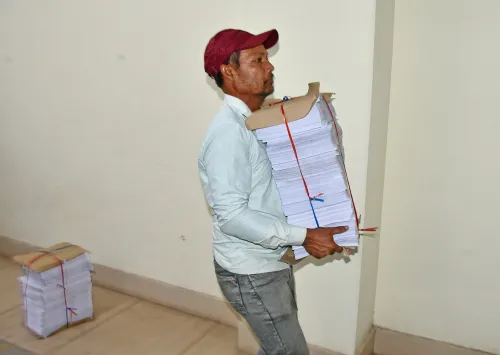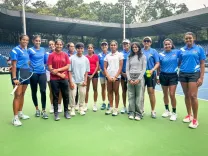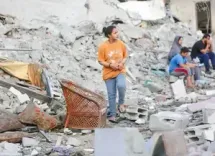Gujarat Prepares for Harsh Summer: Action Plan for High-Risk Areas
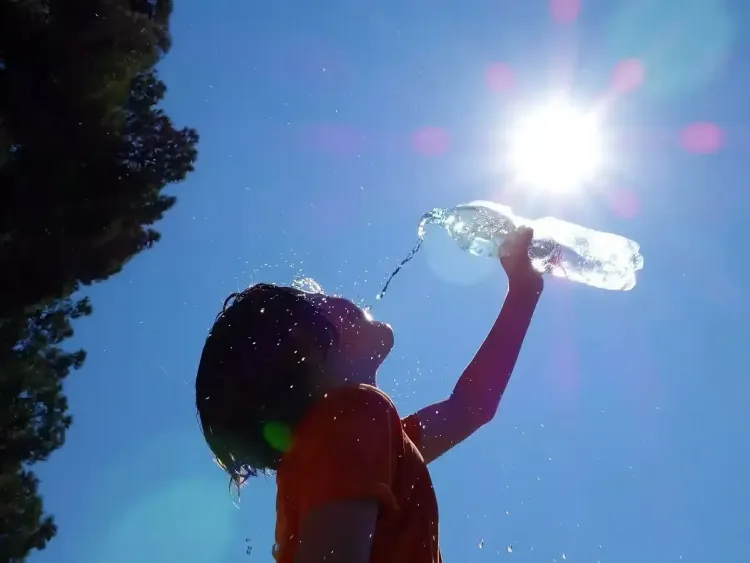
Synopsis
Key Takeaways
- GSDMA initiates Heat Action Plans for vulnerable cities.
- Collaboration with CEEW and IMD for effective measures.
- Focus on protecting vulnerable groups like the elderly and children.
- Importance of local municipal involvement in heat mitigation.
- Authorities urge citizens to stay hydrated and take precautions.
Gandhinagar, April 3 (NationPress) As Gujarat braces for a challenging summer, the Gujarat State Disaster Management Authority (GSDMA) has activated a series of proactive strategies to tackle the escalating temperatures.
On Wednesday, GSDMA hosted a comprehensive workshop in Gandhinagar, pinpointing ten cities and towns highly susceptible to extreme heat. The state government has committed to formulating and executing Heat Action Plans (HAPs) aimed at protecting residents from health risks associated with heat.
Experts caution that climate change is increasing both the frequency and intensity of heat waves in Gujarat. Areas like Surat, Bhavnagar, and Junagadh are especially vulnerable due to elevated humidity, amplifying the harsh effects of extreme heat. Additionally, rural regions face unique challenges, as inadequate infrastructure and limited awareness may compound risks.
In collaboration with the Council on Energy, Environment and Water (CEEW), GSDMA is working alongside the India Meteorological Department (IMD) and local authorities to ensure scientifically-informed implementation of these plans.
The ten cities earmarked for HAP implementation include Idar, Palanpur, Veraval, Radhanpur, Navsari, Bhavnagar, Junagadh, Bhuj, Surat, and Valsad.
Ahmedabad, known for launching India’s inaugural Heat Action Plan in 2013, stands as a benchmark for other cities. With summer 2025 underway, Gujarat has already encountered red alerts due to extreme heat, with multiple districts recording temperatures surpassing 42 degrees Celsius as early as March.
The onset of early heatwave conditions has sparked worries regarding water scarcity, surges in electricity demand, and a rise in heatstroke incidents, pushing authorities to ramp up their preparedness measures.
According to GSDMA, the Heat Action Plans will incorporate early warning systems, cooling centers, awareness campaigns, and emergency response protocols aimed at reducing the impact on the most vulnerable groups, including the elderly, outdoor laborers, and children.
Local municipal bodies will be integral in executing heat mitigation strategies, such as enhancing green cover, securing water supplies, and establishing shaded communal areas. With meteorologists predicting record-high temperatures this summer, officials urge citizens to remain hydrated, avoid direct sun exposure during peak hours, and take necessary precautions.
The state meteorological department has projected that uncomfortable conditions due to hot and humid air are expected to persist over the coastal regions of South Gujarat and Saurashtra-Kutch until April 8.

